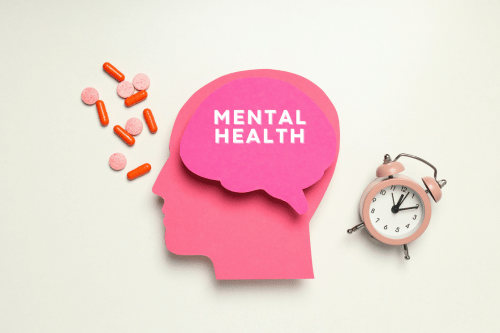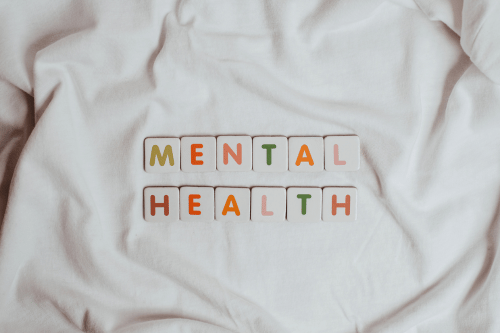Understanding Mental Health Issues in Teens: Causes, Signs, and Support
Mental health issues in teens affect their daily lives, relationships with peers, and academic performance. These mental health conditions can show up in different ways and may lead to serious challenges without proper support. At Adolescent Mental Health, we offer mental health services that help teens overcome mental health concerns and improve their quality of life.

Causes of Mental Health Issues in Teens
Many mental health disorders in adolescents arise from several connected causes.
Biological Factors
Genetic predisposition, brain development, and hormonal shifts can increase the risk of mental disorders. Conditions like Attention-Deficit/Hyperactivity Disorder (ADHD), autism spectrum disorder, and mood disorders often have biological roots.
Psychological Influences
Low self-esteem, past trauma, and excessive worrying can lead to mental health challenges such as Generalized Anxiety Disorder, depressive disorder, and Obsessive-Compulsive Disorder.
Environmental Determinants
Teens exposed to emotional abuse, sexual abuse, natural disasters, or interpersonal violence may develop post-traumatic stress disorder or adjustment disorders. Academic pressure, social pressures, and fragile settings also have negative effects on adolescent mental and physical well-being.
Common Mental Health Disorders in Teens
Teens can experience a wide range of mental illnesses. Some of the most common include:
Anxiety Disorders
Teens may suffer from Generalized Anxiety Disorder, Social Anxiety Disorder, or panic attacks. Symptoms include excessive worry, physical symptoms, and avoidance of social activities or school settings.
Depression
Major depression and clinical depression in teens can cause a depressed mood, loss of interest in daily activities, and symptoms of depression like fatigue or hopelessness. A depressive episode may go unnoticed without early detection.
Eating Disorders
Binge-eating disorder and other eating-related emotional disorders can disrupt physical health and daily lives.
ADHD and Behavioral Disorders
Attention Deficit Hyperactivity Disorder (ADHD) and Disruptive Behavior Disorders often lead to acting-out behavior, difficulty focusing, and poor academic performance.
Other Mental Health Conditions
Teens may also experience Bipolar Disorder, substance use disorder, or early signs of mental illness requiring care from a mental health provider or adolescent medicine specialist.
Impact of Social Media and Technology
While technology can support education and connection, it also contributes to teen mental health challenges.
Screen Dependence
Excessive screen time may reduce physical activity, affect sleep, and contribute to attention deficit disorder.
Cyberbullying
Cyberbullying is linked to increased risk of suicide, suicidal ideation, and self-harming behavior.
Social Media Pressure
Teens often face unrealistic standards online, which can harm their mental well-being and lead to mental health symptoms like low self-worth and anxiety.
Warning Signs and Symptoms
Mental illnesses can show through behavior and mood. Parents, teachers, and school counselors should watch for:
- Mood changes: Depressed mood, anger, or frequent crying
- Behavioral shifts: Risky behaviors, sudden drop in school performance, or withdrawal from social activities
- Isolation: Avoiding friends, family, or group settings
- Suicidal behaviors: Talking about death, creating a suicide plan, or engaging in self-harming behavior
Early Detection and Treatment

Importance of Early Diagnosis
Accurate diagnosis helps prevent the worsening of a mental health condition and improves chances of recovery. The National Institute of Mental Health reports that early mental health treatment reduces the risk of suicide and long-term negative effects.
Available Treatments and Therapies
Mental health treatment includes individual therapy, group sessions, and medication support. Care teams may include a health care provider, mental health professionals, and youth peer advocates. Services for adolescents should also address co-occurring issues like substance abuse or chronic illness.
The Role of Family and Support Systems
Parental Involvement
Active participation in a teen’s mental health care helps build trust and encourages positive behaviors for health.
Peer Support
Youth mental well-being benefits from strong peer networks and involvement in safe social activities.
Community Resources
Families can connect with the 988 Suicide and Crisis Lifeline, crisis counselors, and local mental health resources. The U.S. Department of Health and Human Services and the Mental Health Services Administration offer education and support.
Promoting Healthy Lifestyles
Importance of Sleep
Poor sleep affects both physical health and mental health symptoms. Teens need consistent sleep for better concentration and emotional control.
Role of Physical Activity
Physical activity improves mental well-being and reduces symptoms of depression and anxiety.
Nutrition and Mental Health
Proper nutrition supports brain function and helps regulate mood, especially for teens dealing with depressive disorder or emotional disorders.
Communicating with Healthcare Professionals

Preparing for Appointments
Teens and families should prepare a list of symptoms and questions for the health professional or primary care provider.
Discussing Symptoms Effectively
Clearly describing mental health symptoms such as excessive worry or suicidal ideation can lead to faster treatment of depression or other issues.
Treatment Follow-Up and Management
Ongoing care from a mental health provider ensures treatment plans stay effective. Consistent follow-up reduces relapse and helps teens maintain their mental health.
Resources for Teens and Families
Support Groups and Hotlines
Teens in a mental health crisis can call the 988 Suicide and Crisis Lifeline or contact mental health professionals through Compass Health Center or Teen Mental Health programs.
Educational Workshops and Seminars
Organizations like the Centers for Disease Control and Prevention and Harvard Health Publishing offer information on childhood mental health, youth mental illness, and prevention.
Online Resources and Apps
Tools like MedlinePlus Health, National Library of Medicine, and coloring books for stress relief support teens between sessions. Awareness on children’s rights and child welfare is also available online for parents and caregivers.
At Adolescent Mental Health in Orange County, we focus on providing effective mental health services for school students, children ages 12 and up, and pregnant adolescents. If your teen is showing signs of mental health issues, contact us today to connect with a mental health provider. Early help saves lives and improves the future of youth mental health.










